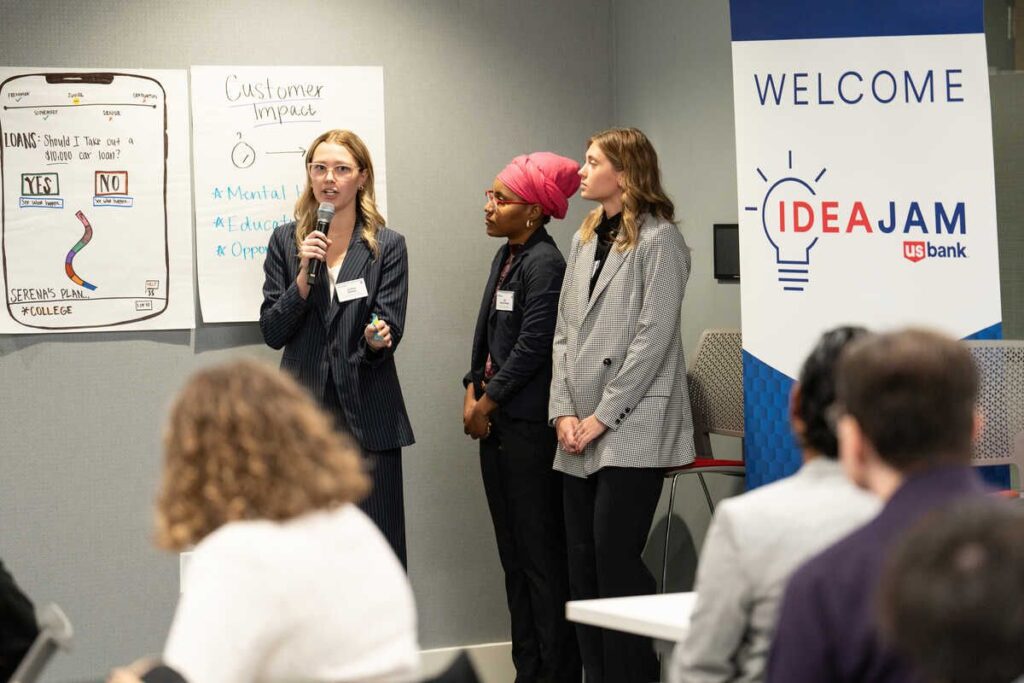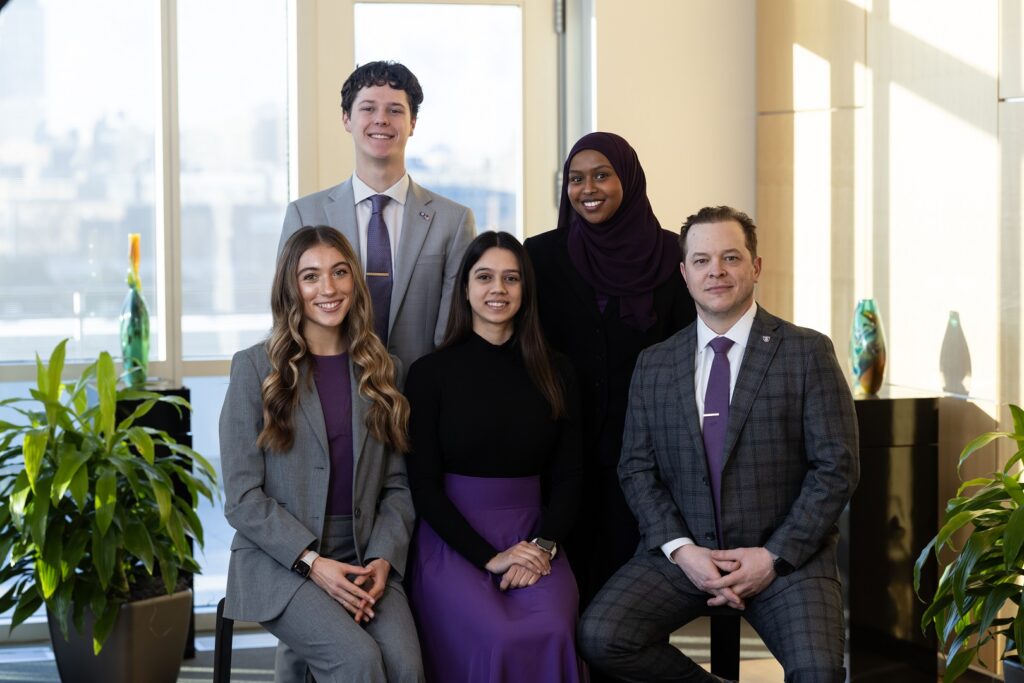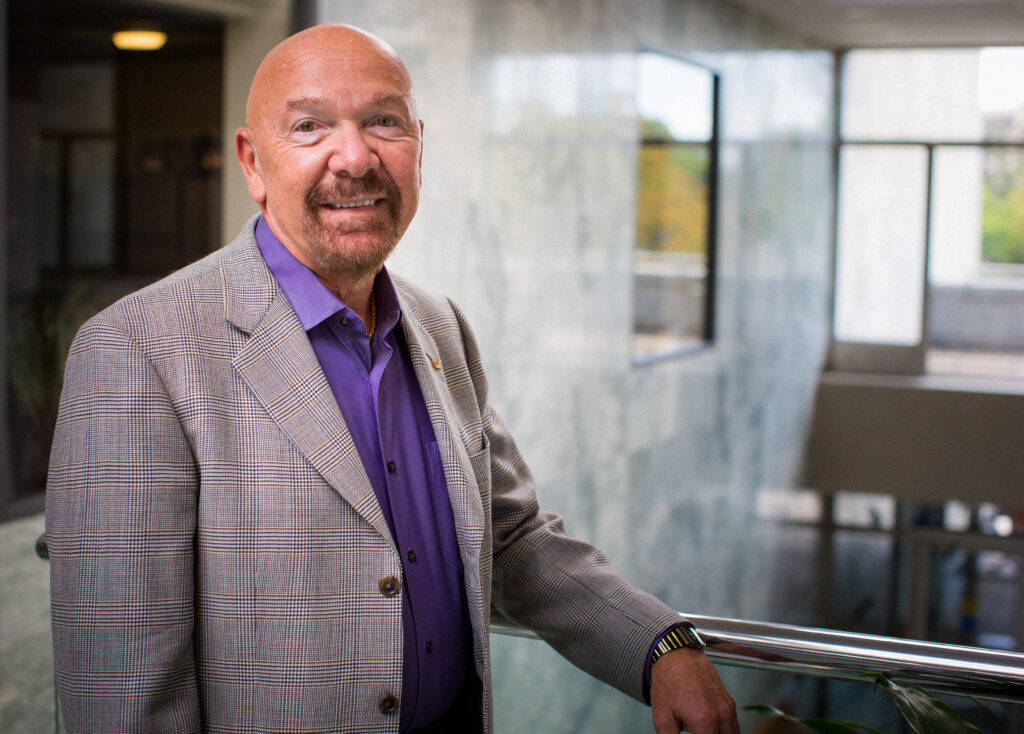Assistant Professor Sarita Matheson, the School of Law’s newest faculty member, says she wanted to teach at the University of St. Thomas for many reasons, including the school’s mission and caring community, along with its focus on developing each student’s practical legal skills.
“I was really impressed by all the coaching and mentoring opportunities provided to St. Thomas Law students,” she said. “From my short time here it’s clear everyone takes the time to really get to know students and support them in their career goals.”
Matheson was also impressed by the law school’s students.
“They are very engaged and think critically about how they can make a difference in the community,” she said. “I look forward to being a part of their journey.”
Supporting students in and outside the classroom is one of the things that originally drew Matheson to teaching after several years as a practicing intellectual property (IP) attorney. Following a clerkship with Judge Edward Wahl in Minnesota’s 4th Judicial District, she worked as an associate at Kelley Drye & Warren LLP in Chicago. She then moved to Carlson Caspers in Minneapolis, where she gained experience in complex patent litigation for clients in the biomedical and life sciences products and services sectors.
“I enjoy getting to know students, their stories, and their ambitions,” Matheson said. “It is a privilege to see students grow in their learning over the course of a semester.”
Her experience as a lawyer also shapes her approach to teaching.
“My practice experience heavily informs what I do in the classroom,” Matheson said. “I understand the demands put on today’s lawyers the moment they graduate. The physical, mental and ethical demands are high. I work to make sure that the legal doctrine they are given in the classroom has relevance to what they will be doing in practice and I like to emphasize to students why it matters.”

She says her role as a professor is to make sure students feel prepared to practice in their area of law when they graduate. One way she does this is by sharing her connections in the legal community.
“Beyond my professional network, I am a member in various IP specific professional groups,” she said. “I look forward to connecting students with practicing IP attorneys through those organizations and other avenues.”
This fall, Matheson will teach Patent Law and in the spring she will teach Food and Drug Law and Pharmaceutical Patent Law and Policy, two new courses she is developing at St. Thomas that draw on her time in practice and educational background.
Matheson holds a Bachelor of Science in biochemistry from the University of Illinois at Urbana-Champaign and a Master of Science in molecular, cellular, developmental biology and genetics from the University of Minnesota. She also earned her Juris Doctor at the University of Minnesota.
At Kelley Drye & Warren and Carlson Caspers, Matheson litigated a variety of patent, trade secret and copyright suits in federal court and before the United States Patent and Trademark Office. However, a large area of her focus was cases that involved the Hatch-Waxman Act, also known as the Drug Price Competition and Patent Term Restoration Act of 1984. The federal law established the modern system for regulating generic drugs in the U.S.
“I went to law school knowing that I wanted to integrate my science background with the law,” Matheson said. “I first learned about how generic medicines enter the market in my FDA law course at the University of Minnesota. I was immediately hooked and interested in learning more about this complex statutory scheme.”
At. St. Thomas, Matheson’s interest in this area of the law will shift from representing clients to research and advocacy on ways to reform the system.
“My academic scholarship at St. Thomas will focus on how the current patent and drug regulatory system should be changed to increase access to generic medicines and lower drug costs for the public,” she said. “As a society we have determined that incentivizing innovation is a good thing. On the other hand, we want the public to have affordable access to medicines. It is important to ensure that the Hatch-Waxman system is working in a way that keeps all players accountable in the interest of the public’s ability to access affordable medicines.”
Matheson has long had a strong commitment to using her legal knowledge to help others. Following law school, she spent time as an Equal Justice Works AmeriCorps Legal Fellow with Mid-Minnesota Legal Aid where she represented children in immigration court. At Kelley Drye & Warren, Matheson helped launched a firm-wide, pro bono program to serve migrants seeking asylum at the U.S. and Mexico border.
“It is imperative to serve vulnerable populations when the opportunity arises or to create those opportunities for service,” she said. “I have always felt strongly that having a law degree is a great privilege.”







